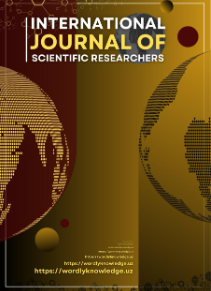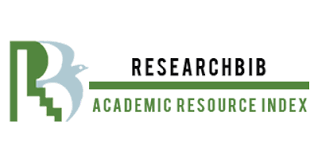PRINCIPLES OF TEACHING A COMMUNICATIVE LANGUAGE
Keywords:
communicative language learning, learning facilitation, classroom, activity, fluency, accuracy, methods, strategies, breakdowns, task-based learning, student-centered learning.Abstract
This article discusses communicative learning and teaching English in a modern lesson. The author provides several useful methods and ways to improve speaking skills, group work, activities aimed at improving students' pronunciation, grammar and listening skills.
References
1. Teaching the teachings of Scrivener. Macmillan books for teachers.
2. Jeremy Harmer. How to learn English.
3. Ellis, R. (2015). Understanding of learning a second language. Oxford, UK: Oxford University Press.
4. Brown, H.D. 1994. Principles of language learning and teaching. Englewood Cliffs, New Jersey: Prentice Hall Regents.
5. Brown H.D. (2007) Learning by Principles, an Interactive Approach to Language Pedagogy, third edition.
6. Ellis, Born (2003). Task-based language learning and teaching. Oxford, New York: Oxford University Press.
7. Littlewood, V. Teaching a communicative language. New York. Cambridge University Press, 1981
8. www.americanenglish.state.gov 5. https://www.facebook.com
9.Isamutdinova, D. (2024). COMPARISONS AS REFLECTIONS OF HUMAN CULTURE AND THOUGHT. Innovations in Technology and Science Education, 3(20), 194-198.
10.Isamutdinova, D. (2024, October). MILLIY TARIX VA MADANIYATNI AKS ETTIRUVCHISI SIFATIDA O’XSHATISHLAR. In INTERNATIONAL CONFERENCE ON MODERN DEVELOPMENT OF PEDAGOGY AND LINGUISTICS (Vol. 1, No. 9, pp. 38-41).
11.Marifjanovna, I. D. (2024). INGLIZ TILINI ORGANISHNING SAMARALI USULLARI. SCIENTIFIC APPROACH TO THE MODERN EDUCATION SYSTEM, 3(28), 36-37.
12.Marifjanovna, I. D. (2024). NEMIS TILINI ORGANISHNING SAMARALI USULLARI. PEDAGOG, 7(9), 138-139.
13.Maripfjanovna, I. D. (2024, June). The Importance of Poems and Songs in the Development of German Vocabulary in Young Children. In Interdisciplinary Conference of Young Scholars in Social Sciences (USA) (Vol. 8, pp. 1-3).
14.Suyarov, A. (2023). INNOVATSION USULLAR–TALABALARNING TA’LIM VA KOGNITİV FAOLIYATINI TASHKIL ETTIRISHNING YANGI TARZI. Philological issues are in the eyes of young researchers, 1(1).
15.Suyarov, A., & Axmadov, H. TOG JINSLARI VA ULARNING FIZIKAVIY-MEXANIKAVIY XOSSALARI. ТОШКЕНТ-2021, 28.
16.Маджидова, Р. У., Мухитдинова, Х. С., & Оманов, П. Х. РОЛЬ ЛИНГВОСТРАНОВЕДЧЕСКИХ МУЛЬТИМЕДИЙНЫХ СРЕДСТВ В ПРЕПОДАВАНИИ УЗБЕКСКОГО ЯЗЫКА КАК ИНОСТРАННОГО. ‘‘ЎЗБЕКИСТОН ОЛИМЛАРИ ВА ЁШЛАРИНИНГ ИННОВАЦИОН ИЛМИЙ-АМАЛИЙ ТАДҚИҚОТЛАРИ’’7-ҚИСМ, 149.
17.Маджидова, Р. У. (2019). Антропоцентризм и аксиологическая картина мира. Наука, техника и образование, (6 (59)), 67-71.
18.Majidova, R. U. (2023). LANGUAGE AS A COMMUNICATION TOOL: UNDERSTANDING ITS FUNCTIONS AND IMPLICATIONS. " GERMANY" MODERN SCIENTIFIC RESEARCH: ACHIEVEMENTS, INNOVATIONS AND DEVELOPMENT PROSPECTS, 9(1).
19.Маджидова, Р. (2018). РЕЧЕВОЕ ПОВЕДЕНИЕ ЧЕЛОВЕКА В СОЦИОЛИНГВИСТИЧЕСКОЙ И ПСИХОЛИНГВИСТИЧЕСКОЙ ТРАКТОВКАХ. Farg'ona davlat universiteti, (1), 20-20.
20.Urishevna, M. R. (2019). Representation of the linguistic world picture through a human factor. RELIGACIÓN. Revista de Ciencias Sociales y Humanidades, 4(15), 234-240.







